Diane Musselmann,
Spouse of the late Kenneth G. Musselmann,
Huntington Beach, California
Kenneth Musselmann served in U.S. Army, Co. B 46th Infantry, 198th Light Infantry Brigade, Americal Division, and received both the Bronze Star and Purple Heart.
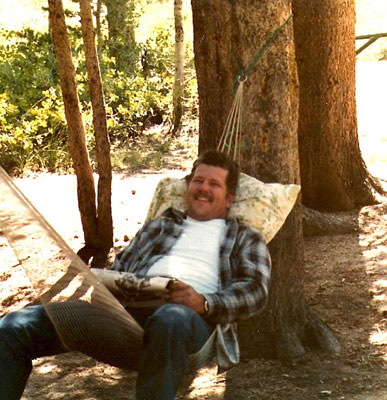
I knew him since I was 11 years old, and called him Kenny. We met in junior high school when I moved to the area (Pico Rivera, California), but we didn’t start dating until high school, which we graduated in 1964. We enrolled in college and got married two years later, then quit college so Kenny could train to become a policeman. He was accepted to the police academy and had completed almost all of his background checks when he was drafted. He returned from a camping trip in the Sierras when the notice arrived. He wasn’t one to look back, just forward. He accepted it and did the best he could.
He did his basic training in Texas and then his advanced infantry training in Louisiana, followed by non-commissioned officer’s school in Ft. Benning, Georgia. He lived on the base and I moved into a small trailer with another wife for six weeks, and then Kenny went back to Louisiana for six weeks to work with his troops. He left for Vietnam the day after his 22nd birthday, in September 1968, the first in his family to serve. I was always very proud of him. He felt that he was doing his duty. He did his absolute best. He was always like that.
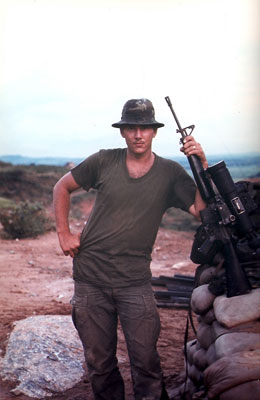
We communicated by letter – it was so different then. There would be weeks I wouldn’t hear from him, but we did what we had to do. What else can you do?
On January 11, 1969, there was a very large ground campaign in Vietnam, in the north in Chu Lai. He and his squad were going along checking things out when he saw spikes sticking out of the ground. He heard a click and the land mine blew up. At the same time he was being hit by sniper fire. Because he was in the middle of a large battle, it was 45 minutes to an hour before medevac could get to him and fly him to a field hospital. I didn’t find out about it until the day I received a telegram from the Army. I also received a letter from Kenny from the hospital. Remember, there was no Internet, no cell phone. He wrote that he was in the hospital and he was okay. That’s what he said: “I’m OK.” That was Kenny.
He lost both legs and had gunshot wounds on both sides, and lots of shrapnel from the bomb in his face and throughout his body. It took out a large piece of muscle of his left arm and prevented the use of couple of fingers. I was devastated but I said to myself, he’s going to be okay. When we finally talked for the first time, I immediately asked, “Will we be able to have kids?” He said, “I can, but I don’t know about you!”
From the field hospital in Japan he went to a hospital in El Paso for about six weeks and then to the Long Beach VA for about a day. They sent him home until he was ready for reconstructive surgery and to be fitted for a prosthetic leg several weeks later. Until then, Kenny used a cane to work the clutch on our car. It was pretty funny.
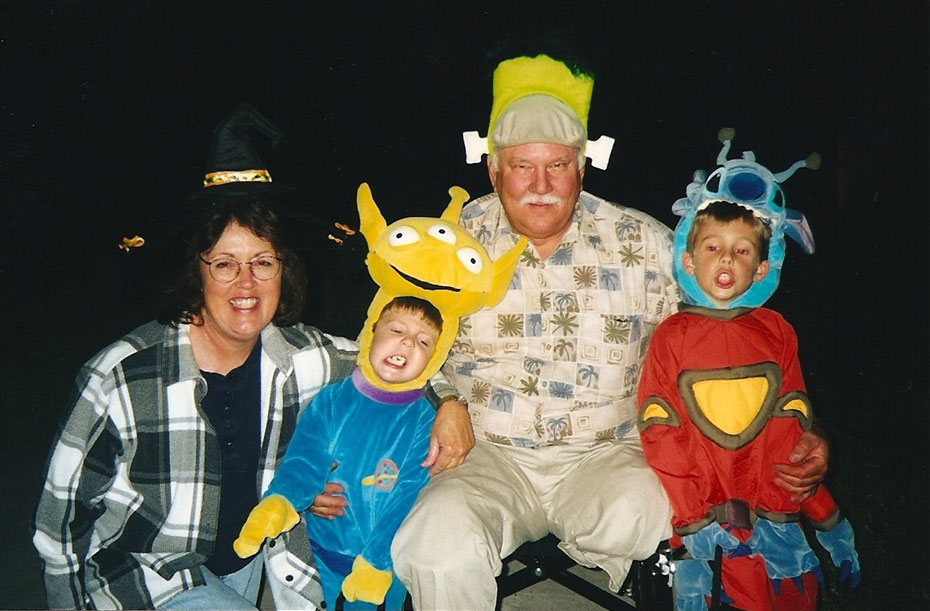
Kenny went back to school, to Long Beach State. I was pregnant by November, and gave birth to our daughter, Kenna, in May 1970. Matthew, our second child, was born in 1973. By the time Kenny graduated from college with a degree in business management and computer science, he was using both legs. We lived in Huntingdon Beach, and Kenny took a job at the Naval Weapons Station nearby, where he stayed for 16 years. He eventually left to become a state adjutant for the DAV in California. He was named DAV National Commander in 1986.
Meanwhile, I was working on and off while raising our children. When Matthew was in high school I took a job in the local school district, and then at age 48 finally went back to college and completed my degree in political science. We’re all a very determined bunch.
Life was different back then for returning veterans. I remember going to meet Kenny and the other returning soldiers at Los Alamitos Naval Air Station. Protestors were there throwing tomatoes. It was truly heartbreaking. That experience was a driving force for him in getting involved in veteran’s issues. He wanted things to be better for other soldiers coming home.

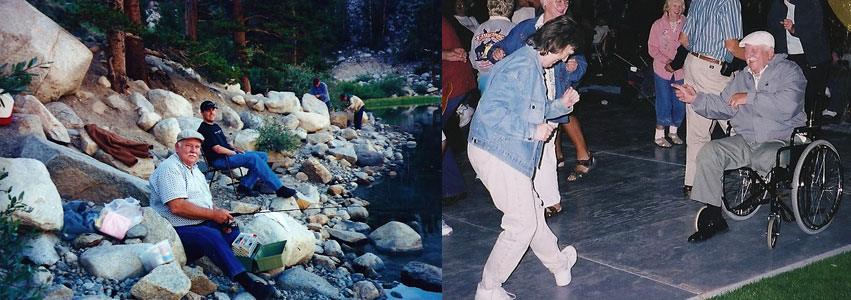
Kenny decided he was going to be just as good as the other dads. He hunted, he fished, he water-skied, and he snow skied. He even painted the house, second floor and all. We had fun. We had a great time. He expected a lot from people but always more from himself
In the late 1980s Kenny battled multiple myeloma, a bone cancer, so he wasn’t able to wear both legs anymore. But he always told Kenna he would walk her down the aisle on her wedding day. He had a short period of time to learn to walk again but he was determined to meet his pledge. I remember standing in the pew with my back to the rest of the church. I didn’t want to turn around because I thought I would start crying when I saw them. I can still hear the room full of people behind me, crying row by row as Kenny and Kenna walked by. And dog gone it, wouldn’t you know it? He walked her all the way down the aisle. That spirit totally epitomizes Kenny.
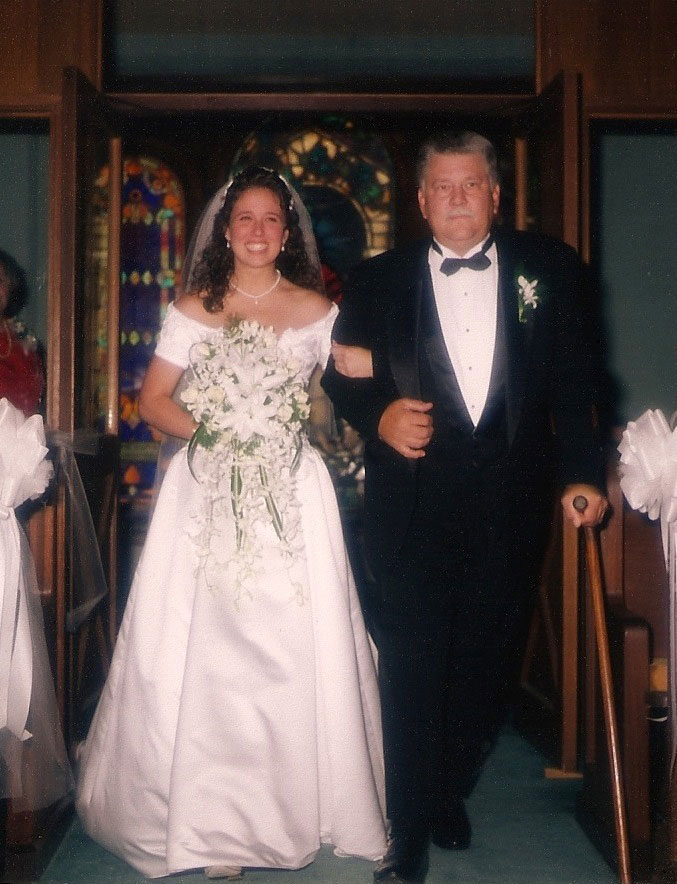
What the Memorial Means to Me
This Memorial means reaching a dream of Kenny’s. It means remembering all the sacrifices that so many have made and have gone unnoticed by our country. Soldiers are injured and life goes on, except, life is never the same. Whether you can see someone’s disability or not, the pain never leaves. The day the Memorial is dedicated, my family and I will be there to represent Kenny and stand for him. I know he will be standing proud, too.